Space Worksheets for Ages 3-7
6 filtered results
Difficulty Level
Grade
Age
-
From - To
Subject
Activity
Standards
Favorites
With answer key
Interactive


Space Maze: Comet Worksheet
Worksheet
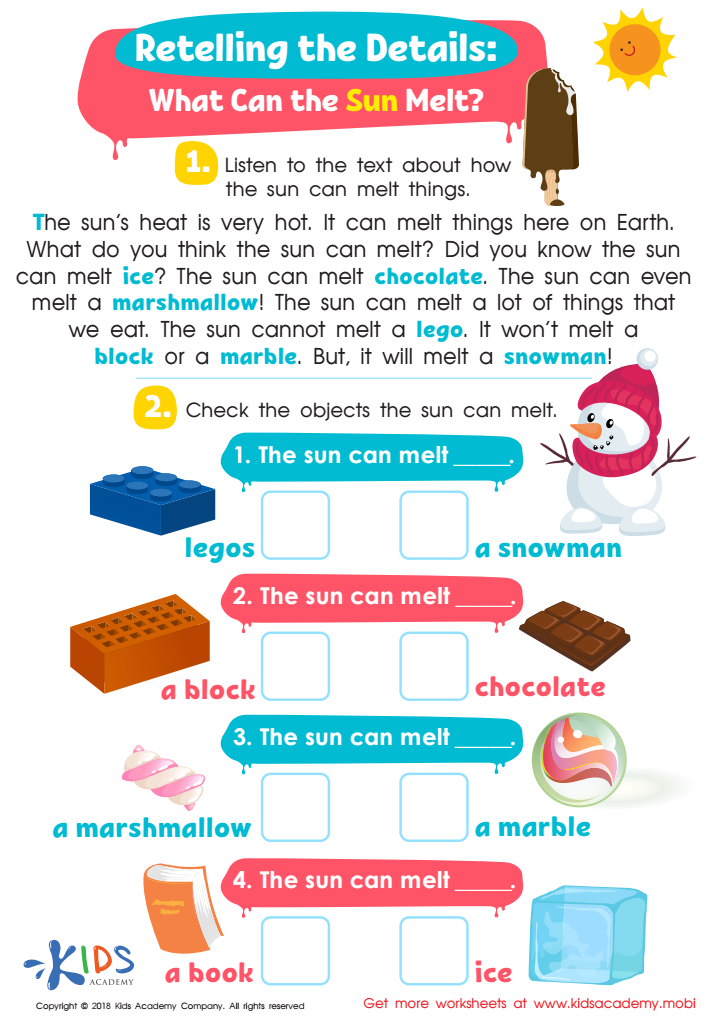

Retelling the Details: What Can the Sun Melt? Worksheet
The sun is that hot yellow ball in the sky. Its intense heat can make us sweat and even melt things! Ask your kids what things the sun can melt. Read this short informative text and have them highlight the objects. Then, read the questions out loud and help them find the right answers.
Retelling the Details: What Can the Sun Melt? Worksheet
Worksheet
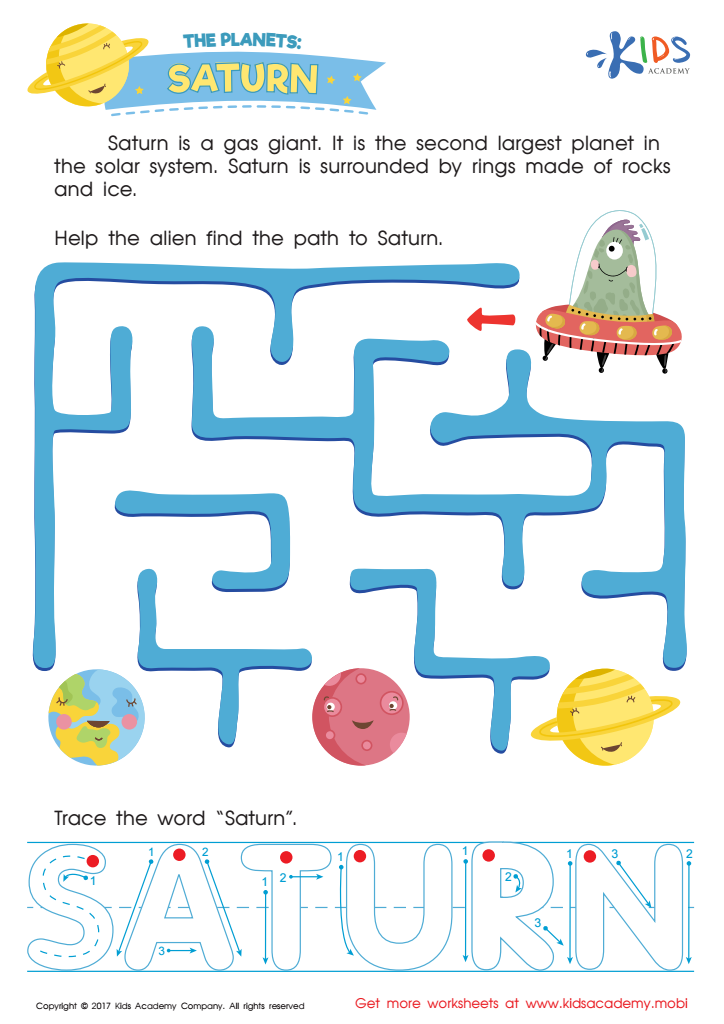

The Planets: Saturn Printable
Help your child explore the solar system with our engaging Space Maze: Saturn worksheet! Kids can trace words, use logical reasoning, and learn more about Saturn while having fun! This worksheet has it all, helping your child master reading, writing, and reasoning skills while learning about a planet.
The Planets: Saturn Printable
Worksheet
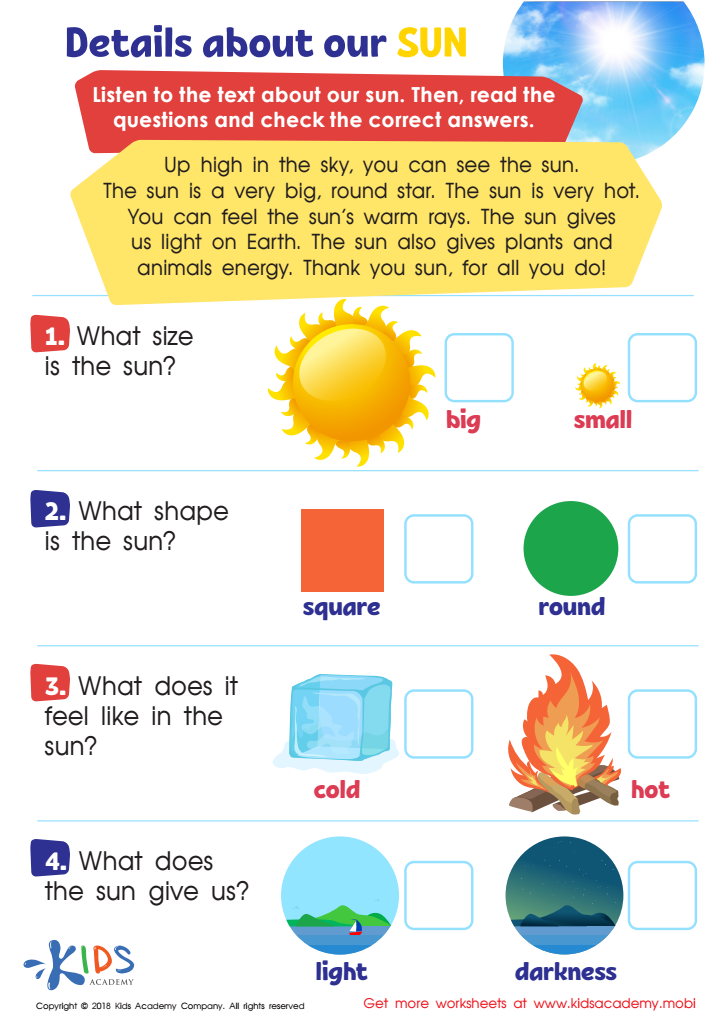

Details About Our Sun Worksheet
Teach your kindergartners about the sun with this worksheet. Read the informative text to them, then ask the questions and help them mark the right answers. Discover what your student knows about this big glowing ball of fire in the sky.
Details About Our Sun Worksheet
Worksheet

 Assign to the classroom
Assign to the classroom
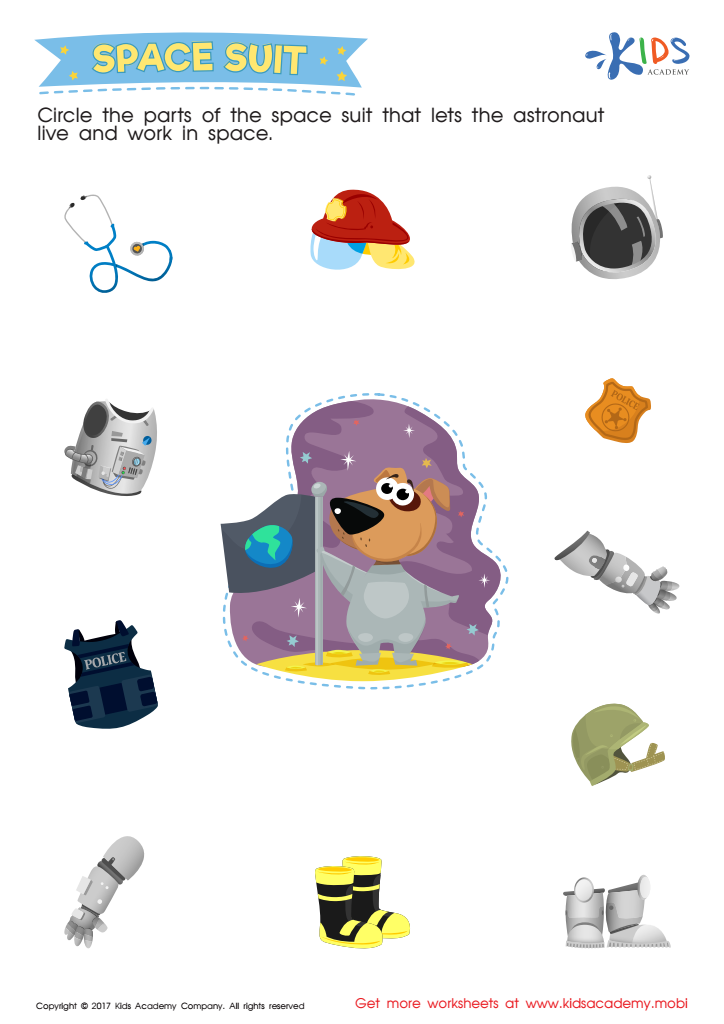
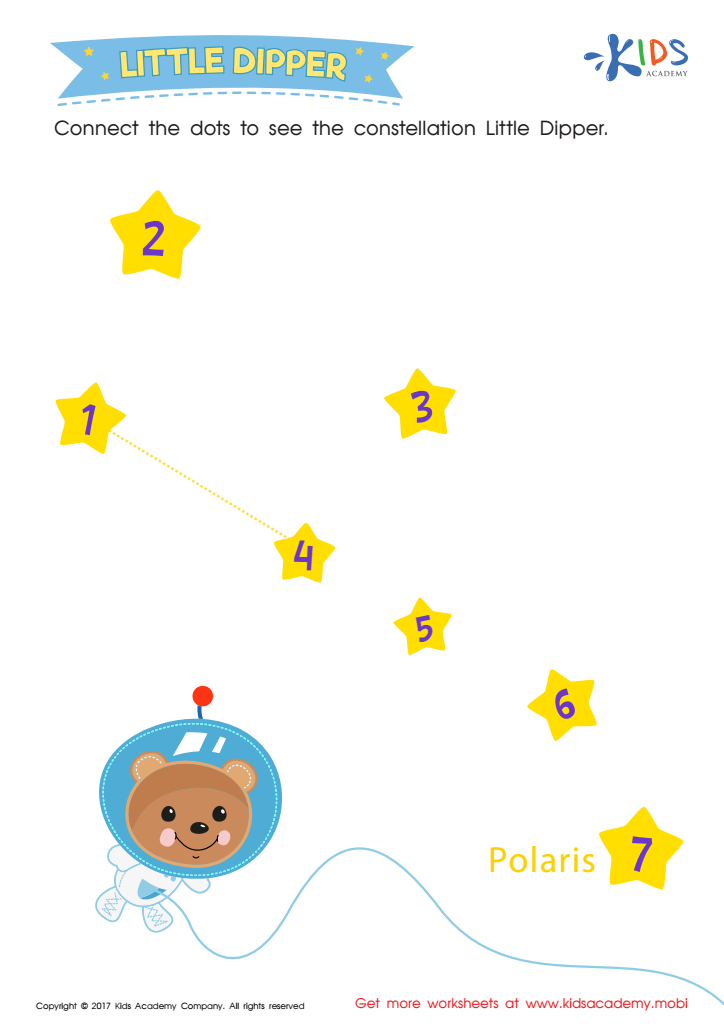
.jpg)











